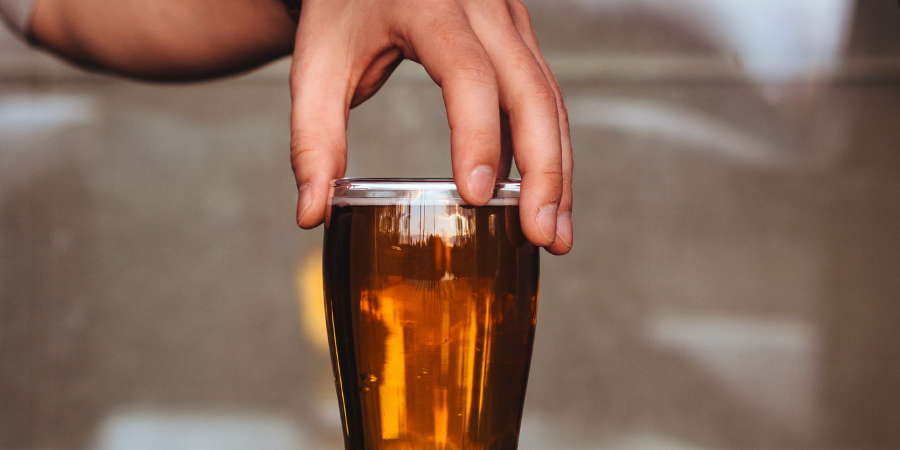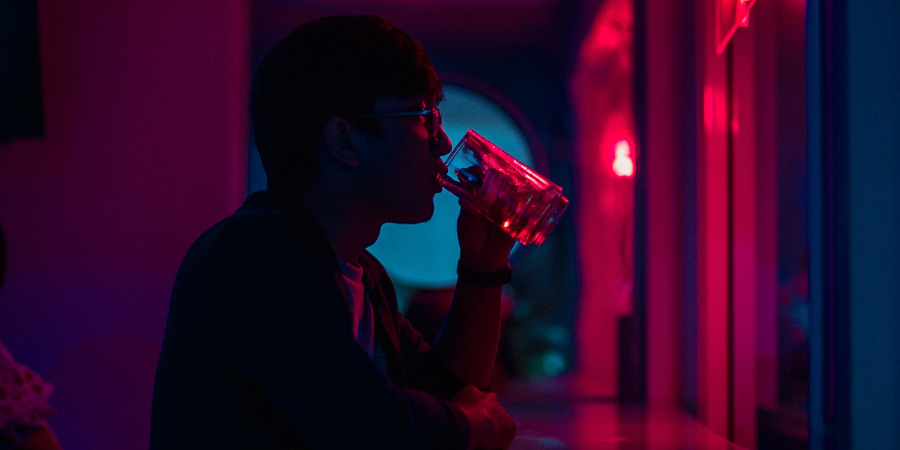
Envision it is a sunny Friday afternoon. You’ve just finished work and set off to the pub to meet your friends, anxiously waiting for your drink to arrive. You need this drink to de-stress, just one to take your mind off work and relax. But this picture is often far from reality.
Fast forward to the following day. Your head is pounding, and your mind won’t stop racing. Although it’s bright and beautiful outside, you couldn’t possibly enjoy it now, especially with such an intense hangover.
With #worldbeerday fast approaching, we thought this would make a good opportunity to look at the clever role advertising plays in our perceptions of alcohol, exploring some of the negative outcomes that this can have on today’s casual drinking culture.
Advertising and alcohol consumption
Since 2007, International Beer Day, or #worldbeerday has expanded from a small, local event in the United States to a worldwide phenomenon, marketed as a celebration for individuals to unite, to revel in the shared love of one thing and one thing only. Beer. But what is it about beer, or alcohol in general, that warrants a celebration? And what are the implications of such an event on society’s attitudes toward drinking?
From a young age, many of us associate drinking alcohol with having fun, seeing it as a great opportunity to come together and enjoy a few drinks in good company. It is customary to drink on special occasions like birthdays, football games, or even on a spontaneous night out. The belief that drinking is a common and somewhat expected fixture in social circles today is frequently supported by the media, with brands displaying alcohol as a glamorous addition to an evening, one which can transform your event from ordinary to exceptional after just a few glasses.
But how does this image of alcohol impact consumers? Well, the answer is clear. By reassuring audiences that drinking is a routine occurrence this perpetuates the idea that alcohol is neither harmful nor dangerous. In fact, research suggests that alcohol campaigns often target younger drinkers to engage with alcohol, with these brands, to some extent, dependent on more harmful drinking to protect their profits. Depicting drinking in such a way can influence users, causing them to forget that alcohol is actually a chemical with considerable toxic effects, ones which can cause damage to our health if we are not careful. Unfortunately, however, those who have only seen alcohol from the media’s perspective might be unaware of the risks associated with heavy drinking, ones which can lead to dangerous and irreversible consequences.

The darker side of drinking that the media doesn’t want you to see
While there is no doubt that, for some of us, alcohol can be enjoyed safely and in moderation, many of us will also admit to overdoing it, indulging in one too many pints the night before and feeling particularly fragile the next day. However, while it is quite common to succumb to these not-so-glamorous symptoms, it is unlikely that alcohol companies would sell nearly as many products if they included these realities in their advertising. Let’s take a look at some of the darker truths that come along with alcohol consumption.
Poor mental health
The idea that drinking increases confidence and makes us happier is not always a certainty. While alcohol can boost our mood and confidence in the short-term, in the long-term, alcohol can be quite dangerous for our mental health, with that initial surge of dopamine experienced the night before leaving you deficient in those same chemicals the next day. This can cause feelings of low mood and heightened anxiety, ones which can persist for quite some time after the hangover subsides.
Long-term impairment
Over time, excessive alcohol consumption can have detrimental effects on physical health, leading to serious problems such as digestive issues, high blood pressure, liver disease, and even cancer. Drinking can also increase the likelihood of road accidents, as well as alcohol-induced anger and aggression, with those under the influence behaving in ways that they wouldn’t normally. In fact, in England from 2019 to 2020, there were over 280,185 alcohol-related hospital admissions.
Risk of addiction
The media often portrays drinking as a harmless activity, but for some, it has the potential to tear apart lives. With many of us can enjoy a few drinks now and then, others can witness their habits cross over into something far more serious. Those who suffer from alcohol addiction drink in a way that is often uncontrollable, continuing to use the substance even if it is posing noticeable harm to their health. Addiction is a powerful condition which can lead to many negative outcomes if not properly addressed. In fact, it is estimated that there are currently over 4,661 weekly Alcoholics Anonymous (AA) meetings taking place in Britain alone, showing just how many people suffer from this affliction.
Next time you see another glossy ad promoting this airbrushed version of drinking culture, think about the intent behind this marketing, as it is often unrealistic and not true to reality.

Why does marketing matter?
Alcohol advertisements are all around us. From promotional content persuading us to buy the newest flavoured gin to discount sales and gentle nudges to treat ourselves and go for that glass (or bottle) of wine, this persuasion often normalises both harmful and dangerous attitudes to drinking.
In our world today, we are surrounded by people whose stories we may not know the full extent of. While not everyone will fall under the clutches of dangerous drinking, this is a reality that exists for many and should not be ignored. Addiction, by nature, is a condition that does not discriminate and can impact any of us at any time. It is therefore important to be aware of the darker side of alcohol use, mindful that what we view in the media does not always reflect what is real.
Armed with this knowledge, you have the power in the palm of your hand to abstain from the hashtag, to take a step back without succumbing to #worldbeerday.


